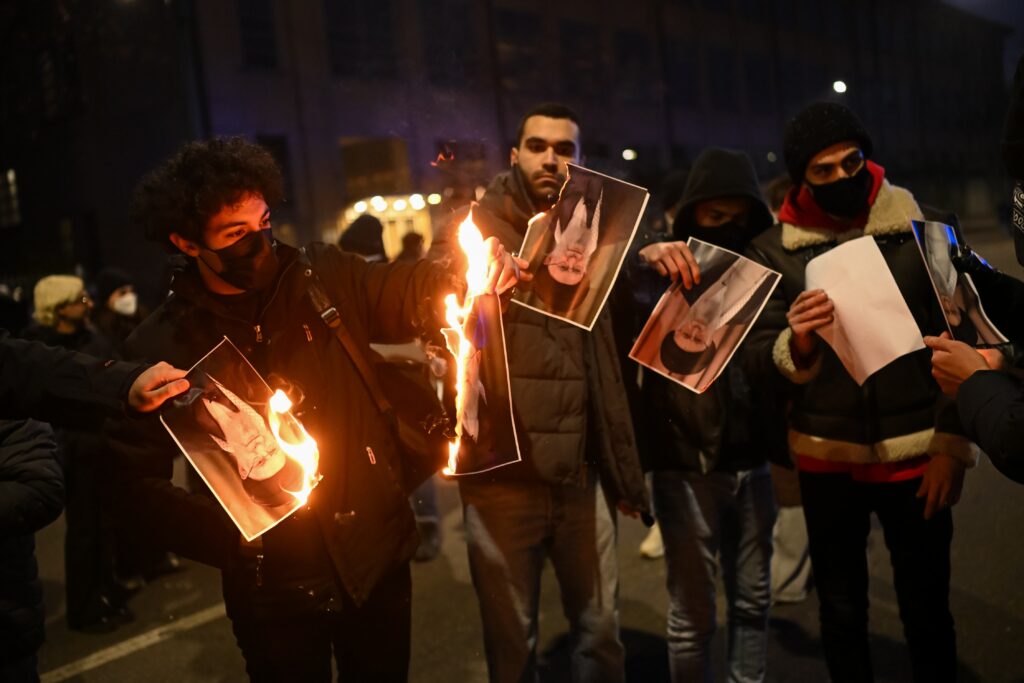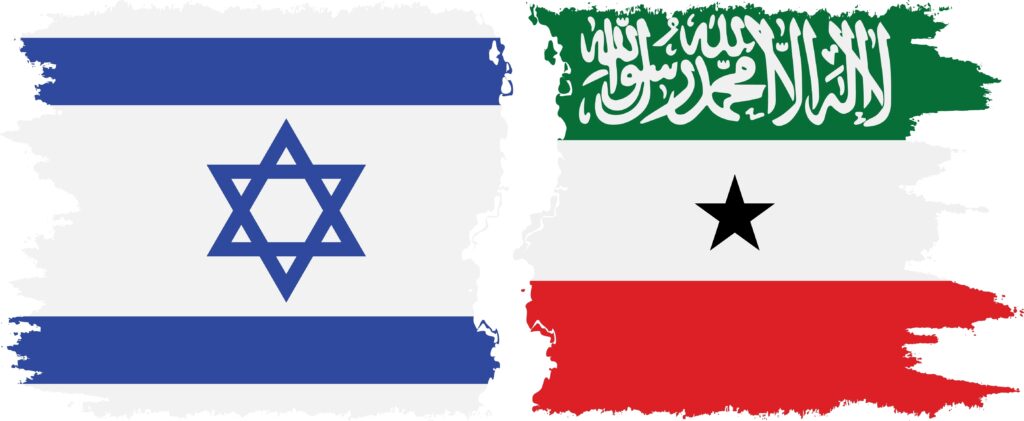IN THE MEDIA
Antony Loewenstein’s Reign of Error
August 7, 2006 | Ted Lapkin
Ted Lapkin
Crikey.com
After only a week on the bookstore shelves, it seems that Antony Loewenstein’s My Israel Question is undergoing a second print run. This might indicate that the book is going like hotcakes. But according to Neilsen’s Bookscan, which keeps tabs on book sales nationwide, only 318 copies were sold during that period.
These paltry sales figures would seem to belie any contention that the decision for a second run of My Israel Question was based on purely commercial calculations. But when contacted, Melbourne University Publishing (MUP) denied this, citing purely profit-driven considerations stemming from figures of around 400 copies sold. According to MUP, this constitutes an “overwhelming response” to the book.
But could it be that the additional print run constitutes simply a hasty attempt to fix a few more of the egregious misstatements in the book? MUP contends otherwise, but it has already hastened to distribute an errata sheet that addresses a seriously flawed map in the book’s preface. And there is no shortage of factual mistakes elsewhere in Loewenstein’s book.
For the record, here are two more glaring examples of the amateur scholarship that litters My Israel Question (additional examples appear on the Crikey website). They are bloopers so basic that they impeach Loewenstein’s claim to competence as an informed Middle East commentator:
1) PLO SUPPORT FOR SADDAM HUSSEIN
On page 90, Loewenstein states: “The PLO “did not endorse Saddam’s aggression (against Kuwait in 1990).”
But a simple Lexis-Nexis search reveals that Yasser Arafat’s support for Saddam Hussein during this period was both public and effusive. On 30 September 1990 – two months after the conquest of Kuwait, the New York Times wrote the following: “Driven by pro-Iraqi sentiments in the occupied West Bank and Gaza Strip and among the Palestinian majority in Jordan, Mr. Arafat has deepened his already intimate ties with President Saddam Hussein of Iraq, condemning the United States military build-up in the region and promoting a settlement that would reward Iraq for its invasion with territorial and economic concessions by Kuwait.”
And at the height of the war – on 12 February 1991 – the Courier-Mail ran a Reuters story that featured the following statement by Arafat: “These are glorious days for our Arab nation, because we are witnessing an epic of legendary steadfastness by the Iraqi people and the valiant army under the command of my brother, the knight Saddam.”
2) PALESTINIAN SUICIDE BOMBING
On page 91 of My Israel Question, Loewenstein claims that suicide bombing campaign commenced only after the Oslo Accords were signed. This contention underpins his argument that suicide terrorism was a reflection of Palestinian frustration with Israeli intransigence: “Ominously, Palestinian suicide bombing commenced in 1994, the year after Arafat and Rabin’s famous appearance on the lawns of the White House.”
But in fact, the Palestinian suicide bombing campaign began in April 1993, five months before the Oslo accords were signed. And a second pre-Oslo Accord bombing took place on 12 September 1993, the day before the White House ceremony. This attack was generally interpreted by Mid East analysts as a signal of the Hamas intention to continue its war against Israel.
3) FREE, BUT UNDEMOCRATIC
In successive paragraphs on page 66, Loewenstein can’t seem to decide whether Israel is a democracy or not. In the third paragraph he describes Israel as a “free country with a relatively open press.” But in the following paragraph he dismisses Israel as an “undemocratic Jewish state.” Such blatant self-contradiction on the same page is a sign of sloppy thinking, shoddy writing and slipshod editing.
4) SIGNING ON TO MYTH
On page 270, footnote 35, Loewenstein demonstrates that he is willing to endorse any claim of Israeli criminality – even those that have been conclusively disproved in a court of law: “Another even more murderous campaign, with around 200 killed, occurred in May at Tantura, a small village near Haifa.”
But the accusation that a massacre took place at Tantura was challenged in a defamation suit by the veterans from the unit involved. The accuser, a far-left graduate student named Teddy Katz, was confronted in court with the many factual contradictions that plagued his masters’ degree thesis. Katz was forced to retract his allegation and apologise, and Haifa University gave the thesis a failing mark. (David Ratner, “PA paid legal defense fees of 1948 Tantura affair historian,” Ha’aretz <http://www.haaretz.com/hasen/pages/ShArt.jhtml?itemNo=203871
&contrassID=2&subContrassID=1&sbSubContrassID=0&listSrc=Y
<http://www.haaretz.com/hasen/pages/ShArt.jhtml?itemNo=203871
&contrassID=2&subContrassID=1&sbSubContrassID=0&listSrc=Y>
<http://www.haaretz.com/hasen/pages/ShArt.jhtml?itemNo=203871
&contrassID=2&subContrassID=1&sbSubContrassID=0&listSrc=Y > [accessed 2 August 2006]>)
5) GETTING IT WRONG ON AIPAC FINANCIAL CONTRIBUTIONS
On page 129, Lowenstein claims that the American Israel Public Affairs Committee (AIPAC) gave money to a pro-Israel congressional candidate: “Jewish organisations, including AIPAC, offered financial support to her rival, Denise Majette.”
But AIPAC has never made monetary contributions to political campaigns, including during the 2002 McKinney-Majette Democrat primary battle.
6) ORGANISATIONAL CONFUSION
On page 83, Loewenstein confuses the organisational affiliation of Menahem Begin: “Menahem Begin, a member of the Stern Gang…”
But any serious student of Israeli history is aware that Begin was the leader of the Irgun, a different underground organisation that was separate from, and initially a rival to, the Lehi (Stern Gang).
7) PEELING THE PEEL PLAN
On page 74, Loewenstein claims that “neither side accepted the idea” (of the Peel partition plan of 1937).
But the Zionist Executive (the mainstream Jewish governing body) accepted the Peel plan as a starting point for further negotiations, while the Arabs rejected it out of hand. (Anglo-American Committee of Inquiry – Report to the United States Government and His Majesty’s Government in the United Kingdom (1946), Chapters VI and X)
8) MISREPRESENTING RESOLUTION 242
On page 82, Loewenstein asserts: “Israel never complied with this ruling” (UN Security Council Resolution 242).
But a perusal of the Resolution’s text reveals a requirement for Israel to withdraw from some, and not all, of territories captured in 1967. The British UN ambassador at the time, Lord Caradon, later wrote: “Knowing as I did the unsatisfactory nature of the 1967 line, I wasn’t prepared to use wording in the Resolution that would have made that line permanent.” Lord Caradon, United Nations Security Council Resolution Two Forty Two – A Case Study in Diplomatic Ambiguity (Georgetown University, 1981)
By withdrawing from the Sinai in 1979 – which constituted 90% of the 1967 occupied territories, Israel complied with the stipulated requirements of 242. Israel also withdrew last year from Gaza, and the current Israeli government has announced its intention to relinquish most of the West Bank, as well. By contrast, the refusal by the Hamas Palestinian government (and Lebanese Hezbullah) to accept Israel’s right to exist violates the Resolution’s requirement for: “termination of all claims or states of belligerency and respect for and acknowledgement of the sovereignty, territorial integrity and political independence of every State in the area and their right to live in peace within secure and recognized boundaries free from threats or acts of force.”
9) THE CANARD OF “JEWISH-ONLY ROADS”
On page 57 (and on Lateline), Loewenstein accused Israel of building “Jewish-only roads” in the West Bank.
Cars bearing Israeli licence plates have frequently been ambushed in the West Bank, particularly while driving through Palestinian towns and villages. To minimise the danger of such attacks, Israel has constructed a series of bypass roads that go around heavily populated Palestinian areas in the West Bank. For obvious reasons, travel on these roads is restricted to Israeli cars. But cars bearing Israeli plates also belong to the over one million Israeli Arabs, some of whom have been shot to death in Palestinian ambushes as well. The bypass roads were built to save lives, and it is factually erroneous to portray them as a manifestation of Israeli racism.
Tags: Anti-Zionism





